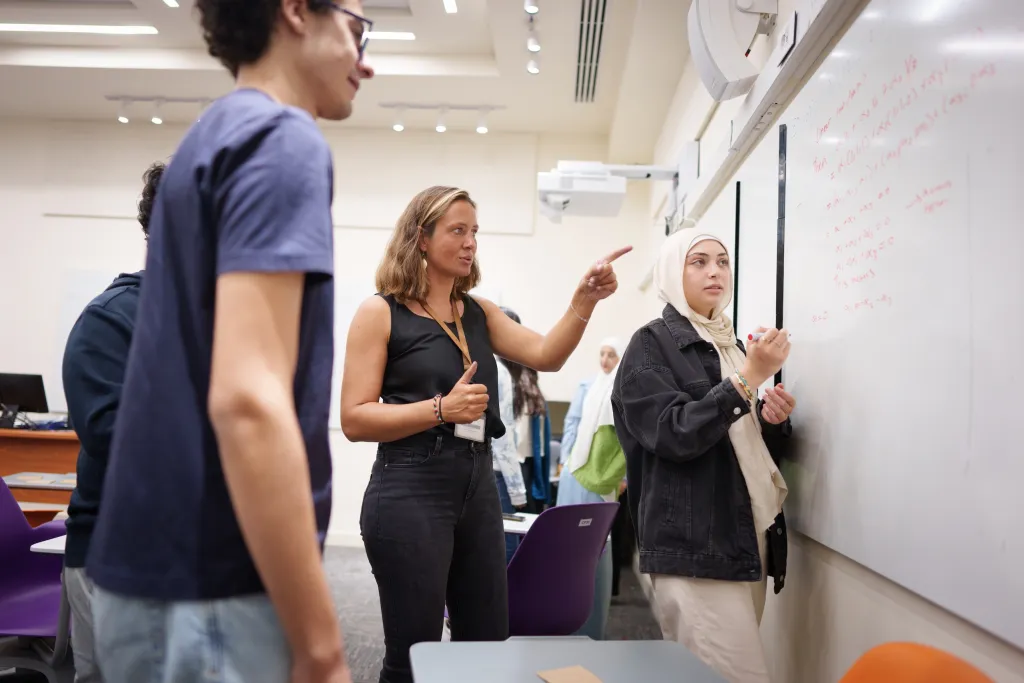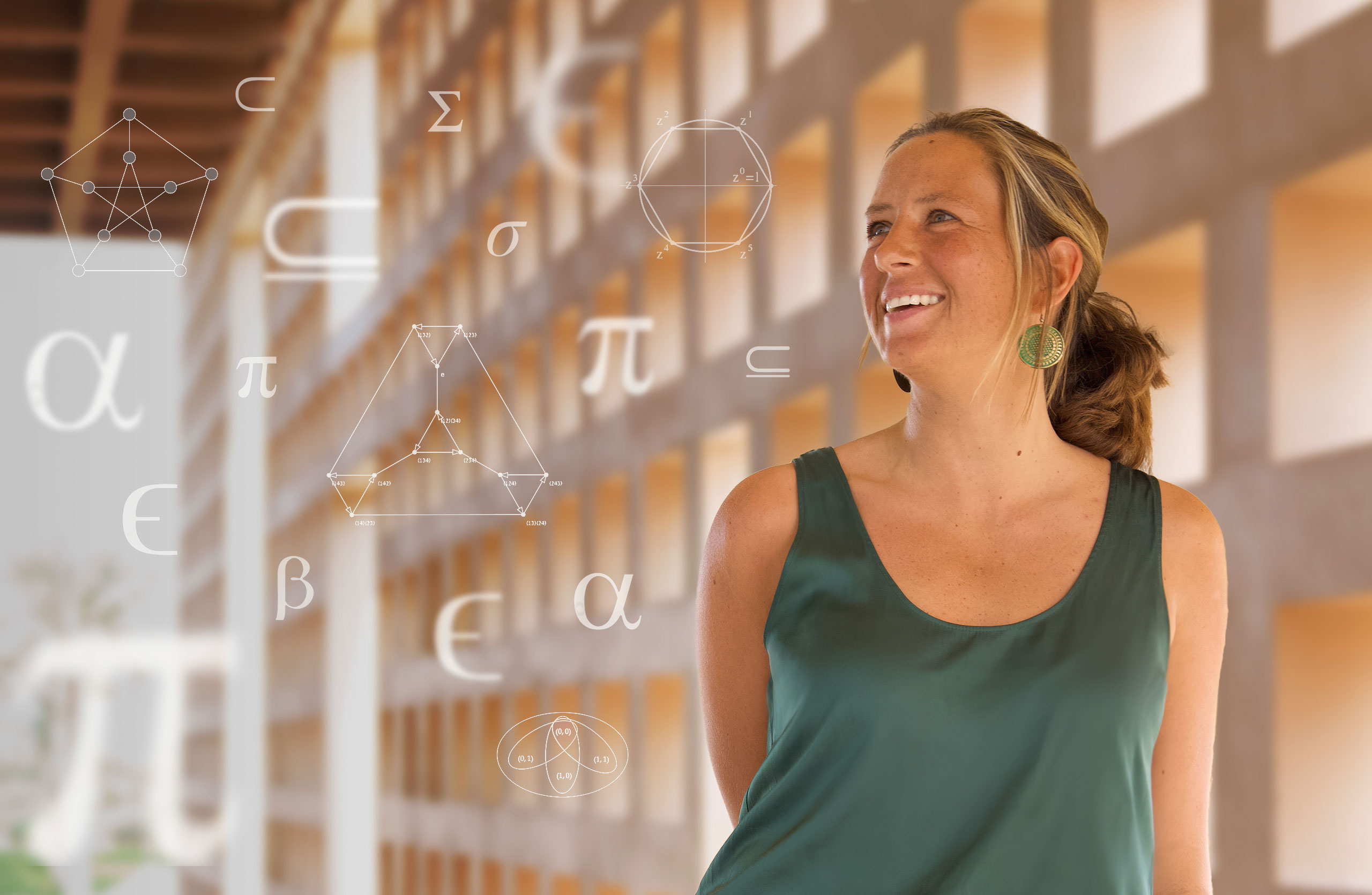"Often when I meet people and they learn about me, they notice a lot of contradiction in the things that I'm passionate about," says Isabel Muller, assistant professor in the Department of Mathematics and Actuarial Science. "I like mathematics, which is considered nerdy; music, which is more artistic; and kite surfing, which is on the adventurous side. But for me, they are all the same."
While Muller may field more than her share of confused looks describing her interests, finding harmony in seemingly disparate disciplines fits right into the philosophy of her work. Common threads, shared logic and an expansive viewpoint are all pieces of what shapes Muller's approach to math. "You can look at a piece of music, and what you learned in linear algebra will help you understand the music," she explains. "Through math, I want to teach students the fundamentals of how to approach a problem and think about things, and what makes a valid argument. Once you find the right point of view, poof. Everything lights up."
Defining the Rules
In most aspects of life, there are few opportunities to find absolute truths. That's one of the qualities that makes math so special to Muller. In her research, which is centered on an approach called model theory, she looks for broad guidelines and frameworks that can be explored, tested and then hopefully applied to other problems. "In model theory, you zoom out from one specific problem and try to find rules that will hold true across the board. Then not only can you apply these rules to your puzzle, but others can apply them to theirs."
"Math is like walking into a dark room and turning on the light."
Developing theory synthesizes everything that was true about the initial problem and then moves beyond its scope, allowing Muller to design more general tools that can help progress other parts of the field. "It can be so abstract that even many mathematicians do not have an understanding of it, but with these tools, you can prove crazy things," she says.
Sometimes, it almost feels like science fiction: "For example, we can prove that, in any formal system, there are statements -- referred to as 'independent statements' -- that can never be proven or disproven. We can show that it's not that we didn't find the proof for this statement within our system of arithmetic, but that nobody, even if extraterrestrials came with even more developed brains and intelligence, could ever prove them."
Muller's work is less about coming up with something new and more about uncovering truths that have always existed, waiting to be described. "In my view, any mathematical truth that you discover has been there the whole time. It's like you're carving it out of a block of stone," she says. "Those truths will be true forever because there's an intrinsic logic to them. The feeling of discovering a part of the puzzle that makes this world work as it does is incredibly satisfactory. Math is like walking into a dark room and turning on the light."

Finding Math in Everything
The logic of mathematics isn't confined to its structure, the classroom or the discipline as a whole. But it is often misunderstood, and therefore underappreciated. "There are huge misconceptions about math. So once you show students what it's actually about, you see them flabbergasted -- like wow, this is beautiful," Muller states. "When they understand that math is not at all about numbers, but about relationships, they catch this fire and start becoming total nerds."
Once the fire is lit, Muller explains that a math degree can take you anywhere. "There's really a plethora of different careers that can come from a math degree. I'm a mathematical logician. Half the class that I graduated with went on to study philosophy, and some went into climate science research," she says. "Even for jobs in computer science, they often invite more mathematicians to interview than actual computer scientists because you learn such strong rational thinking and development of ideas and pathways."
For Muller, math is as creative as art. It's versatile, beautiful and social. And sharing and communicating your ideas clearly is one of the most crucial aspects. "I tell my students that math is prose," she says. "If you tell me something mathematical, write me a poem. Don't just throw formulas around. Explain; be creative. Talk with clear, precise words, but the point is to talk."
-By Em Mills


